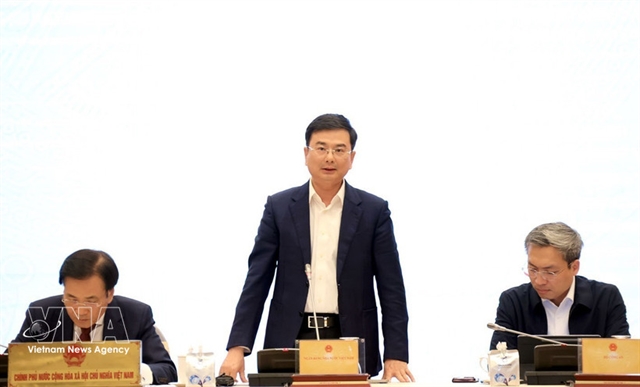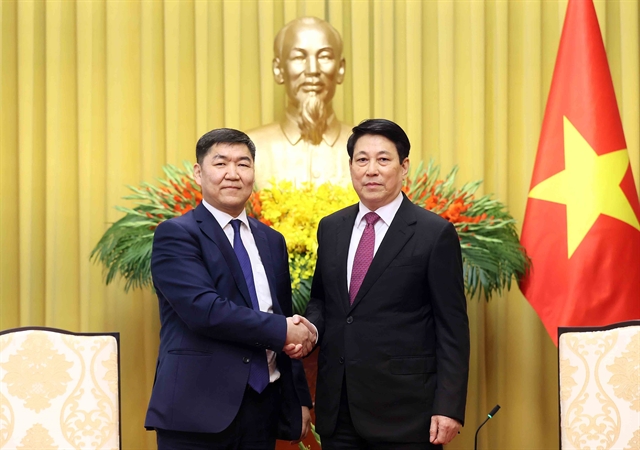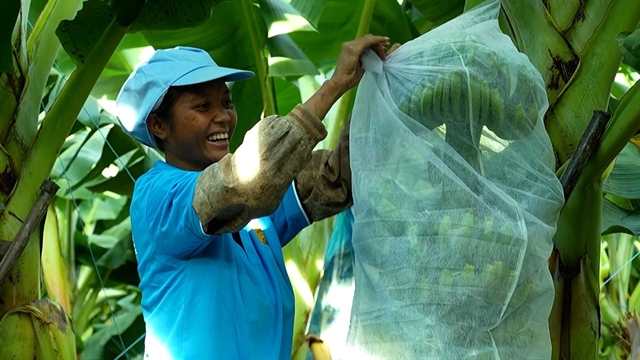 Opinion
Opinion
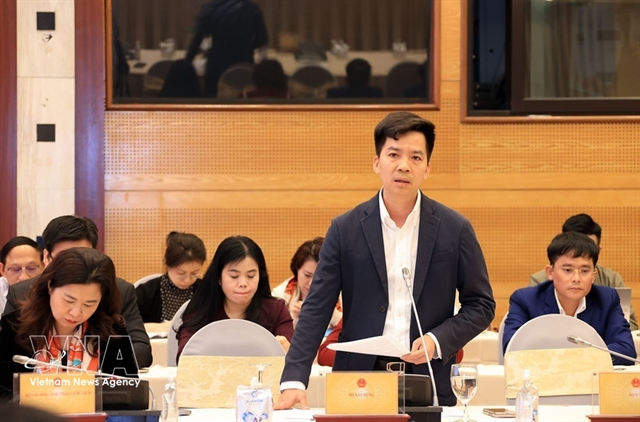
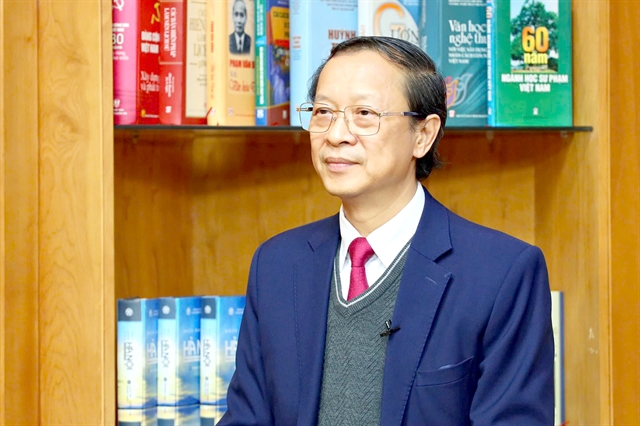 |
| Deputy Minister of Education and Training Phạm Ngọc Thưởng. VNA/VNS Photo |
Deputy Minister of Education and Training Phạm Ngọc Thưởng spoke to Vietnam News Agency about Circular 29 on extracurricular teaching and tutoring, which has been receiving significant public attention. He emphasised that as long as parents remain overly focused on their children's academic achievements and fail to fully recognise the role of family education alongside school education, the negative aspects of extracurricular teaching and tutoring will persist.
Could you provide details about Circular 29 on extracurricular teaching and tutoring, which was approved by the Ministry of Education and Training and will take effect on February 14?
Since 2012, regulations on extracurricular teaching and tutoring have been governed by Circular 17 issued on May 16, 2012) and Decision 2499 issued on August 26, 2019, which repealed certain provisions of the circular. However, after more than a decade, many aspects of these regulations have become outdated.
On January 10, 2024, the Prime Minister tasked the Ministry of Education and Training with drafting and issuing a new circular to replace Circular 17. As a result, Circular 29 was issued on December 30, 2024, establishing regulations on extracurricular teaching and tutoring based on five key principles:
First, the circular aligns with the Education Law of 2019 and other relevant legal regulations while also adapting to the realities of local education management.
Second, the circular regulates extracurricular teaching and tutoring rather than banning it. It clearly defines which activities comply with regulations, enabling local authorities, organisations, individuals and society to oversee, inspect and monitor their implementation.
The extracurricular teaching and tutoring must not disrupt or negatively impact the official school curriculum.
All tutoring activities must prioritise students' best interests and be based on voluntary participation.
Finally, the updated regulations align with the 2018 General Education Curriculum, which shifts from content-based to competency-based education. This approach encourages students to be proactive and creative, while teachers serve as facilitators, assessors and guides.
Additionally, the teaching format is diversified, incorporating advanced technology.
What are the key updates in Circular 29 to ensure the principles you just mentioned?
Circular 29 introduces several new regulations to better align with its guiding principles.
Extracurricular teaching and tutoring is prohibited for primary school students, except for enrichment programmes in arts, sports and life skills. Additionally, students enrolled in full-day school programmes (two sessions per day) are not allowed to participate in extra tutoring.
In-school tutoring must be free of charge and is only available to students who have not met the required learning outcomes for a subject at the end of the semester, students selected by the school for gifted student training and final-year students voluntarily enrolling in classes for entrance or graduation exams, following the school's education plan.
Under the 2018 General Education Curriculum, the ministry has specified subject hours and learning objectives tailored to students’ abilities. Schools have autonomy in designing their educational plans, while teachers are encouraged to innovate their teaching methods. If schools and teachers follow the prescribed curriculum and teaching hours, students will receive sufficient knowledge to meet learning goals without requiring extra lessons.
The ministry aims for schools to function without extracurricular tutoring. Instead, students should have time after regular classes to engage in recreational activities such as sports and the arts. Schools should foster an environment where students not only acquire academic knowledge but also develop holistically – enhancing their character, social awareness, problem-solving skills and ability to integrate into society.
Individuals or organisations offering private tutoring services for a fee must comply with legal business registration, declare their activities and provide relevant information to local authorities. Teachers currently employed at schools are prohibited from tutoring their own students outside the school for a fee.
These regulations prevent teachers from coercing students into paid private lessons. However, students who are not eligible for in-school tutoring and wish to seek additional learning outside the school may do so voluntarily. This ensures that extra learning is a genuine choice for self-improvement, rather than a forced requirement.
What are the responsibilities of different stakeholders in effectively implementing Circular 29?
Public feedback so far has been largely supportive of Circular 29. To ensure its successful implementation, all relevant parties must understand and fulfil their responsibilities.
After issuing the circular, the ministry will continue to release additional directives and guidance to assist provincial Departments of Education and Training in implementing the regulations locally.
Local governments must take proactive measures to effectively communicate the policy, organise specialised conferences to educate and guide stakeholders, strengthen governmental oversight of extracurricular teaching and tutoring activities and strictly enforce regulations, addressing violations and recognising educators and institutions that demonstrate dedication to students' well being.
Many departments of education and training have already issued guidelines for implementing the circular and have advised local governments on educational support policies. All departments are urged to swiftly finalise their localised implementation strategies.
For schools and educators, they are responsible for ensuring students develop the necessary skills and competencies to meet curriculum standards, designing assessments that align with programme requirements without creating unnecessary pressure and supporting struggling students in preparing for key tests, such as high school entrance and graduation exams.
Some concerns have been raised that restricting extracurricular teaching and tutoring may reduce teachers’ earnings. However, many dedicated teachers, particularly in preschools and remote areas, have never relied on tutoring yet remain committed to their profession.
The negative aspects of extracurricular teaching and tutoring have affected not only students but also many honest, well-intentioned teachers. The new regulations aim to protect the dignity of the teaching profession by eliminating exploitative practices and ensuring a fair, supportive education system.
What are the short-term and long-term solutions for effective management of extracurricular teaching and tutoring?
Extracurricular tutoring is a real demand for both teachers and students. However, it still carries negative aspects that need to be addressed. To regulate these activities effectively, both immediate and long-term solutions must be implemented.
First, the education sector must introduce clear and specific policies to regulate extracurricular tutoring. For example, the issuance of Circular 29 provides guidelines to ensure transparency and accountability in tutoring activities.
Second, improving the teaching methods and professional responsibility of educators is essential. When teachers enhance their instructional skills and deliver more effective lessons in the classroom, students will have less need for extra tutoring.
Third, strengthening oversight and enforcement is crucial. Regular inspections and strict monitoring will help prevent unauthorised tutoring and ensure compliance with regulations.
It is important to also raise awareness among students, parents and educators. Schools and communities must engage in awareness campaigns to emphasise that education should not be overly dependent on extracurricular tutoring. Parents should also be encouraged to trust the school curriculum and allow their children to develop at their own pace.
In the long run, investing in educational infrastructure and ensuring equal access to quality education is necessary. The expansion of schools, improvement of facilities, along with an increase in the number of full-day schooling programmes will reduce students' dependence on private tutoring.
Another key strategy is fostering independent learning among students. Schools should focus on helping students develop self-study skills and creating a more engaging, interactive classroom environment. When students become more proactive in their learning, they will not need as many extra classes.
Additionally, improving teacher welfare is a crucial solution. Ensuring fair salaries and career stability for educators will help reduce financial pressure, which is often a key motivation for excessive tutoring. The upcoming Teachers’ Law is expected to introduce new policies that support teachers’ professional development and improve their well-being. — VNS

